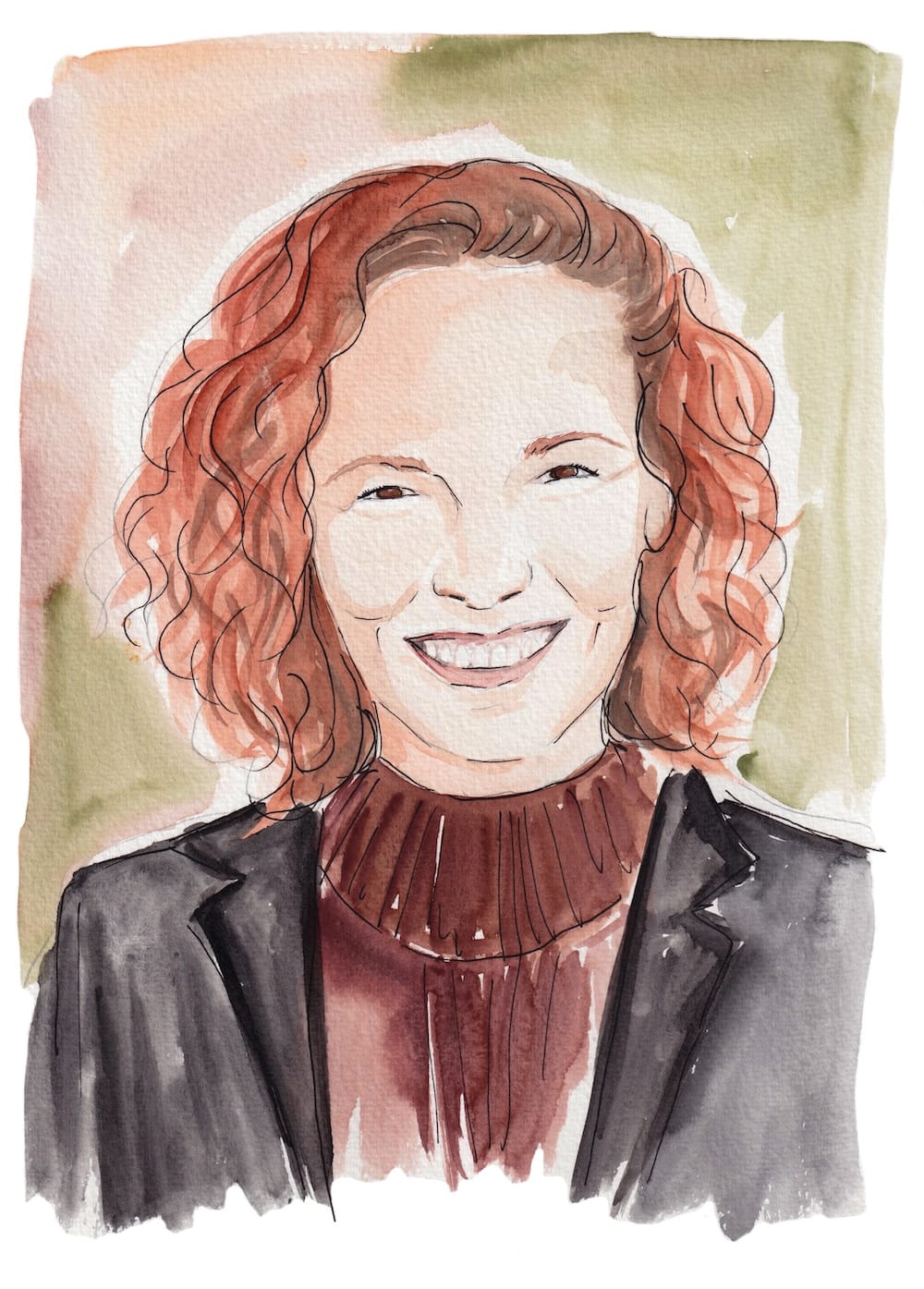'Just Pills'—How Women Created Their Own Abortion Revolution
A new book reveals how ordinary women—not doctors—first noticed the effects of the medication now sold as so-called ‘abortion pills.’

In 1990, a psychology professor in Brazil named Margareth Arilha noticed something unusual: At a small hospital in the northeastern state of Ceará, fewer women were dying of “abortion-related complications.”
As in many countries, abortion was banned in Brazil, leading some women to take matters into their own hands, often with fatal consequences. But Arilha noticed that women who came to Assis Chateaubriand Maternity Hospital after self-inducing abortions were suddenly surviving. It was, notes Rebecca Kelliher in her new book, “Just Pills: The Extraordinary Story of a Revolution in Abortion Care,” a reversal of “what had been a devastating trend.”
It wasn’t long before Arilha figured out what was happening, especially because the patients didn’t hide what they were doing. It turns out that they were taking a pill called Cytotec, a drug marketed as a stomach ulcer treatment and sold over the counter in Brazil from 1986 to 1991. The drug’s scientific name was misoprostol.
“On each Cytotec box was a… stick figure of a visibly pregnant person in a dress, a red line diagonally cutting across her body to say: If pregnant, do not take these pills,” writes Kelliher. But word of the medication’s efficacy had spread through the local whisper network, allowing women to safely induce their own abortions.

Kelliher’s book, published in September, chronicles in rigorous detail how two drugs, misoprostol and mifepristone, came to be at the center of the culture wars, describing the political and scientific breakthroughs that had to take place for the medications to be paired up and prescribed together, creating a safe and effective abortion medication that is usually taken at home, with a 98% success rate in the earliest weeks of pregnancy.
Rather than center the narrative on the U.S., where the pills have been fueling an anti-abortion storm since well before their approval in September of 2000, Kelliher takes us to, among other places, Mexico and Brazil to witness the beginnings of the grassroots “accompaniment” movement,” in which volunteers accompany women—either in person or over the phone—through their medication abortion, providing support and advice.
It was women who first noticed misoprostol’s side effects; women who used that knowledge to bring about medical abortion and women created support networks so that no one had to go through an abortion alone.
Yet, as Kelliher makes clear, these hard-won advances are under threat not just from politicians, but also from technology. Since the fall of Roe vs. Wade in the U.S. in 2022, she says, “we are seeing reports of increased censorship of information on abortion pills from social media companies.” Campaigners have seen an increase in Meta (Facebook) and other social media platforms blocking some of their content about the pills. At the same time, “We're also seeing…the spread of disinformation about abortion pills…on TikTok,” she says.
Kelliher spoke to me about her book, and where she expects the next biggest threats to medical abortion to come from. Our conversation has been edited for length and clarity.
Why write a book about this?
I didn't actually know that abortion pills existed until [a few years ago.] And I thought, well, that's strange. Why don't more people know about them?
But I didn't really start writing the book until the fall of 2020, when Ruth Bader Ginsburg died. Trump was still president and rushed Amy Coney Barrett onto the court. It seemed that the Supreme Court would [end Roe] at the first available opportunity.
How did things change when Roe was overturned?
What I didn't anticipate was just how quickly women were spreading the word about abortion pills in the U.S. That was kind of amazing to see in real time, but it was also challenging to keep up. Yet even now, not enough people know these pills exist.
What is the pro-abortion campaign getting wrong about communicating its message and spreading information? Some people don’t like the phrase “pro-choice”, right?
One criticism is that “pro-choice” messaging assumes that a person does have a true choice in ending an abortion. But maybe that person is living in such dire poverty that if their circumstances were different, they would actually have had that child. If you don’t acknowledge that, the argument goes, the message won’t resonate with the women who are actually getting abortions. So rather than “pro choice” a growing number of activists identify as being part of a “reproductive justice” movement,” which aims to take into account, especially here in the U.S., that cost is such a huge barrier to not just abortion care, but to reproductive health care in general.
The largely anti-abortion administration in the U.S. has more power to reach people than do the advocates for reproductive justice. Why is that?
It's a simple story to say “You're killing a human life.” It's more complicated to convey the reproductive justice vision of holding all of the possible feelings a person can have about their abortion. One lends itself to a soundbite more easily than the other.
On the other hand, we know from polling that the right to an abortion is popular here in the U.S., and that the majority of Americans did not want the Dobbs decision [that overturned Roe v. Wade) to happen.
What measures have you seen taken to push back on these medications?
The Secretary of Health and Human Services, Robert F. Kennedy Jr, has been pressuring the Food and Drug Administration [the body that approves medications], to review mifepristone’s safety data. This seems to be part of a push to get the FDA to go back on the decision it made permanent in 2023 that allowed mifepristone to be mailed, which has made all of the telehealth abortion services we see now in the U.S. possible.
We are also seeing lawsuits against some of these telehealth providers. There are currently eight states in the U.S. that have so-called telehealth abortion shield laws, which are meant to lower the legal risk to providers who prescribe and mail abortion pills to people living in states where abortion is banned or severely restricted. These providers are mailing thousands of pills a month to people, so that is really pissing off the American anti-abortion movement.
There are a couple of lawsuits against some of these specific providers. There's one lawsuit against a provider here in New York, where I'm based, despite New York having a telehealth abortion shield law. There is also concern that one of these lawsuits could end up before the Supreme Court. It would be huge if they did decide to stop those laws.
Your book also looks at some Latin American countries where campaigners are pushing for abortion rights and creating networks to help women access abortion as well as “accompany” them through the process, sitting with them (either physically or over the phone) as they go through their abortions. Why focus on that?
The innovations around these pills and how to get them and support people through [the medical abortion process] were largely occurring not in the U.S., but in countries that had already been dealing with abortion bans for many years. What these women have done has really informed the research and all of our scientific understanding of these medications today.
Could “accompaniment” happen in the U.S. in the same way it's happened in those countries?
If you're living in a U.S. state with an abortion ban or with severe abortion restrictions, you face the risk of being criminalized, since the laws in those states specifically target the support networks around the person [i.e, the “accompaniment” movement].
The other complication has to do with money. In the U.S., we don’t have a healthcare system that provides free abortion care or just free care in general. That makes the idea of community abortion care very foreign to a lot of Americans, because we don't think of any healthcare in that way.
But I think that could change with time. I have spoken to people here in the U.S. who identify as “abortion doulas,” [a doula traditionally provides guidance to and advocates for a woman during her birth]. That really draws from the accompaniment model.
What’s the one key theme from your book you want readers to walk away with?
That abortion pills are safe and they're effective, and yes, extraordinary. But the people behind these medications, who've been working for so many years and continue to work on trying to put the pills in people's hands and support people through their abortions—they are extraordinary, too. So even though there's a lot to despair of here in the U.S., there's also a lot to be hopeful for.





